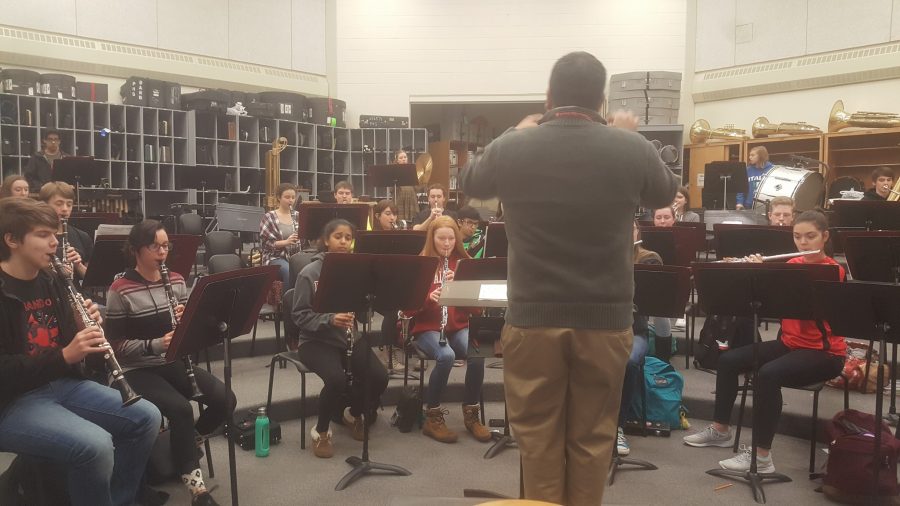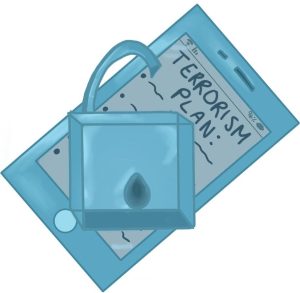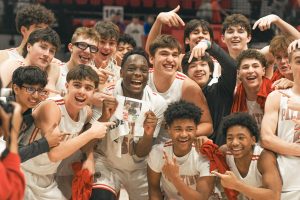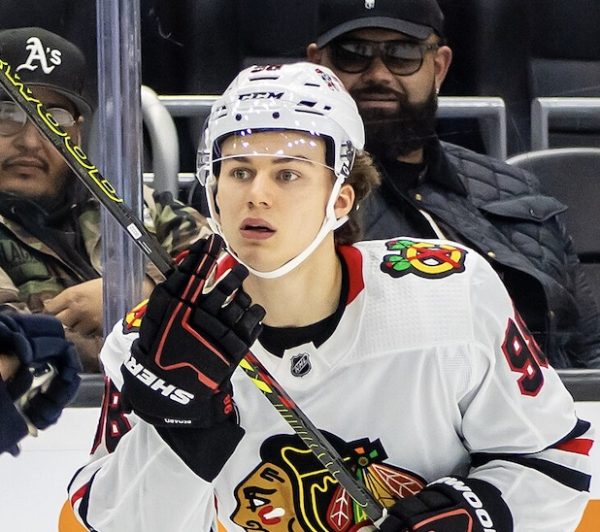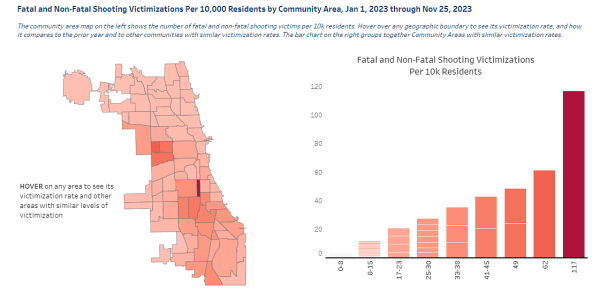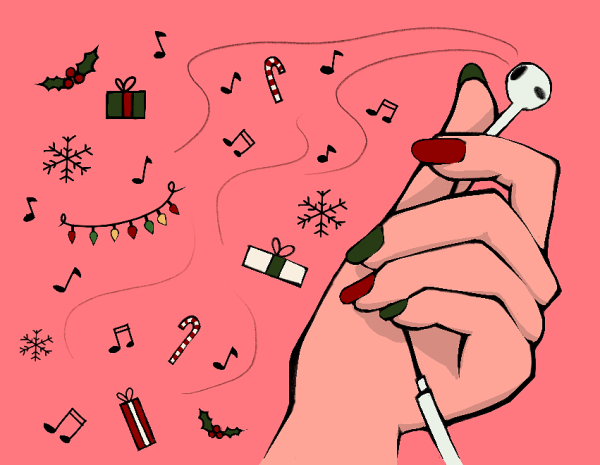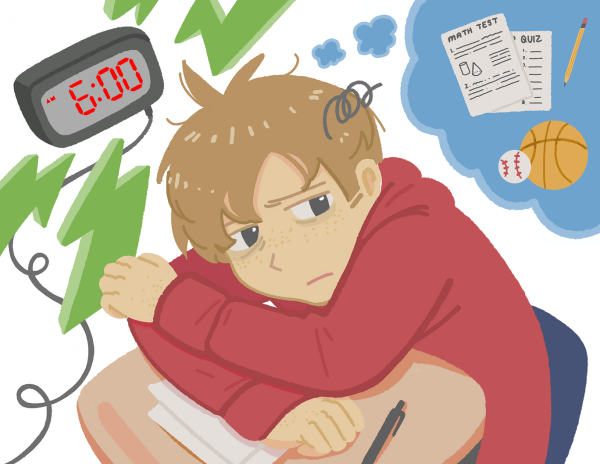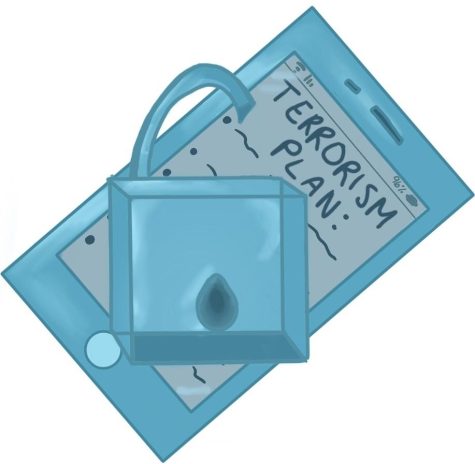Is the significance of our school’s music program being overlooked?
January 30, 2017
Music, like most things, is not a phase. Music is art, as well as a sport…yet why is it not recognized as such?
Many music students stick through the program through thick and thin, because music is who they are.
“I’ve bounced from sport to sport,” said Mackenzie Beasley, a junior at Palatine High School. “But music has always been there. It’s the one thing I know I can always fall back on.”
Music takes a big heart to continue with, as well as hours of strict practicing. It is not an easy hobby to keep up with due to the amount of time and money.
Being a dedicated musician, you have to be dedicated to yourself and your music program.
The music program at Palatine High School has a large part to do with the school and the community, attending games, going out into the community to share music as well as give to the students.
But there is a lack of recognition.
As part of the band, and a part of the school, marching band students give in as much, if not more of their time than the team they march for.
Marching band is not just the students with instruments, but the team with poms and flags. We are a collective that stands as such.
We march in with the football team, which then makes the team a part of the marching band as well; although they don’t march in half time with us, they get all the recognition.
Football players practice everyday after school, for two hours during their season. Marching band students practice every day during school, practicing their music while also staying for four hours once a week to run the same drill for the same amount of recognition.
“I do think that the people at games do not respect us as much as I believe they should,” said junior Brian Sonderegger, the clarinet section leader at Palatine High School. “Because, although we aren’t the stars of the show per se, we do work very hard to make sure that we keep the morale of the school very high, and many people do not realize it.”
The boys on the field get praise and cheer for being able to throw a ball, and it makes the crowd go wild, yet when the band takes the field at half-time, there’s a respectful silence yet no cheer.
The parents during the football season have more respect for the band than any other time during the year, and it’s usually the band parents.
“People always come up to me and say the band plays really well,” said drum major Lauren O’toole. “It’s cool to see all the support we have.”
The marching season is supposed to last as long as the football season, yet we started practices long before the football boys did, and it’s because of the time cut out of summer that the band parents realize how much heart goes into the marching season.
Instruments are more expensive than a football.
Marching uniforms are more expensive than football equipment, and all of that comes from the band directors working hard to fundraise to pay for new uniforms, and to maintain our practice space while the school board paid for a new scoreboard for the football field.
The band room had the same instrument cubbies for over 35 years, and the only way we got a new set is because an Eagle Scout built them for us. Yet the school paid for basketball hoops that light up.
During home basketball games, band kids sacrifice homework time as well as time from their sports to support the varsity teams and to show school spirit.
Personally, because of the way the schedule has been done this year, I don’t get to go home after school. I stay at school until the end of the basketball game, as well as countless other band members.
Thankfully, our band directors know that it’s not easy going back and forth between home and school for games, so the band boosters dipped into the band account to buy the entire band pizza.
But doesn’t that sound like something the school should do, or the athletic department? We don’t have to be there, yet we do.
The way we get thanked is by people walking in front of the drum majors, or the student directors, while they’re directing.
I understand that not everyone wants the band there because all we do is play music between quarters and during time outs, but walking in front of the drum majors as slow as you possibly can hurts as much as a punch in the face.
“The audience respects us a lot and has fun,” said Teagan Capek, a freshman at DePaul. “They even dance to the music we play. We play stuff from the older generations which I think that a majority of the audience identifies with.”
Capek attended Palatine High School, and was in the marching and pep band for her four years. Her experiences in the band in college are much more positive than in high school.
“Since those of us in the band are older and more experienced,” said Capek. “I believe they respect us more than they did in high school.”
At Palatine High School, a majority of the audience is the students. We play music from the current generation, so the audience enjoys the music, yet we still don’t get respect.
It’s one thing to get ignored and disrespected during a varsity game, but during a concert, a time dedicated to the band, it’s a whole new problem.
Being a flute player, I sit right up front near the audience. What parents fail to realize, especially if they’re not a music person, is the auditorium is architecturally built to carry sound, so talking carries to the front right to the stage.
When parents who sit right in front talk while the band on stage is performing, their voices carry straight to our ears. Thankfully though, it’s only the front of the band who can hear them.
Many band members agree that the music program is dying, and the members who return and keep going with music are slipping to lower and lower numbers, and it very well could be due to the lack of respect.
As a collective, the band needs to advocate for itself as well as build up the program to become a larger staple in the Palatine community.



